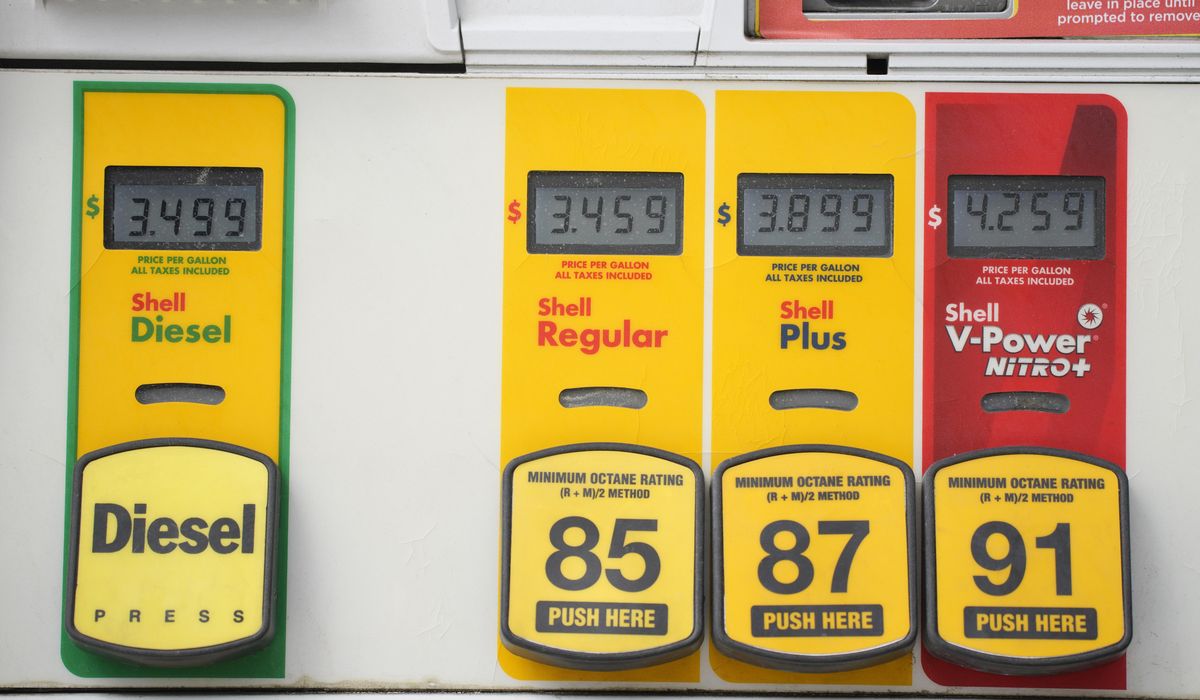
Most Americans are concerned about climate change, but that doesn’t mean they want to get stuck with the tab.
A poll released Wednesday by the free-market Competitive Enterprise Institute found that 35% of registered voters surveyed were unwilling to spend any of their own money to “reduce the impact of climate change,” while 17% said they would agree to kick in between $1 and $10 per month.
The results were virtually unchanged from the institute’s poll conducted in April showing that 35% were unwilling to spend even a dollar and 15% drew the line at $10.
At the same time, 71% said they were concerned about climate change versus 28% who said they were not, exposing what may be the biggest challenge for President Biden’s ambitious and expensive plans to combat global warming by transforming the U.S. economy and energy grid.
“The latest CEI poll shows that while expressing concern about climate change is cheap, many Americans who claim to be concerned about the issue also won’t spend a single dollar annually on climate change policies,” said CEI President and CEO Kent Lassman.
The poll also asked how much more respondents would be willing to pay annually for electricity and gasoline to address climate change, with similar results.
A plurality of 39% said they would be unwilling to pay any extra, while 9% were willing to spend $1 to $10 per year. Ten percent were willing to pay $91 to $100 annually, and 5% said they would spend $41 to $50.
“While humans are undoubtedly contributing to climate change, it remains the case that costly regulations and mandates favored by climate alarmists pose a greater threat than the effects of our changing climate,” Mr. Lassman said. “Tradeoffs matter and climate mitigation policies are no exception.”
The results of the poll conducted Sept. 23-27 with 1,200 registered voters mirrored those from a CEI survey released in May, indicating that Mr. Biden’s push to reduce U.S. emissions has yet to move the needle on climate spending with the public.
The survey also showed Mr. Biden’s job-performance rating underwater, with 52% disapproving and 47% approving, but the president received better marks on his handling of climate change, with 46% approval and 44% disapproval.
The Biden administration’s agenda includes a transition to battery-powered electric vehicles, but only 25% of those surveyed said they were likely to spend extra money to replace their gas-powered car with an EV, while 56% said they were unlikely to do so.
Voters also expressed disapproval of the Biden administration’s move to impose more stringent fuel economy standards, with 57% opposed and 25% in support of changes that the poll said would “limit consumer choice and undermine vehicle safety.”
One of Mr. Biden’s first acts upon taking office was to reenter the Paris climate accord, but the poll showed a plurality of voters were leery about being placed at a global disadvantage.
The survey showed 47% agreed that the U.S. “should only increase funding for climate change initiatives if other nations such as China, India and Russia agree to enforce the same regulations and laws that the United States follows.”
Under the non-binding Paris accord, the U.S. agreed to reduce emissions by 26% to 28% by 2025 from 2005 levels, while China, the world’s biggest emitter, has until 2030 to reach peak emissions before reducing them.








